The unique challenges of throwing a live music event in one of the world’s oldest venues
The Odeon of Herodes Atticus, a theatre in Greece’s ancient Acropolis, has stood the test of time with its headline-grabbing music events – but how difficult is it to produce these events from behind the scenes?
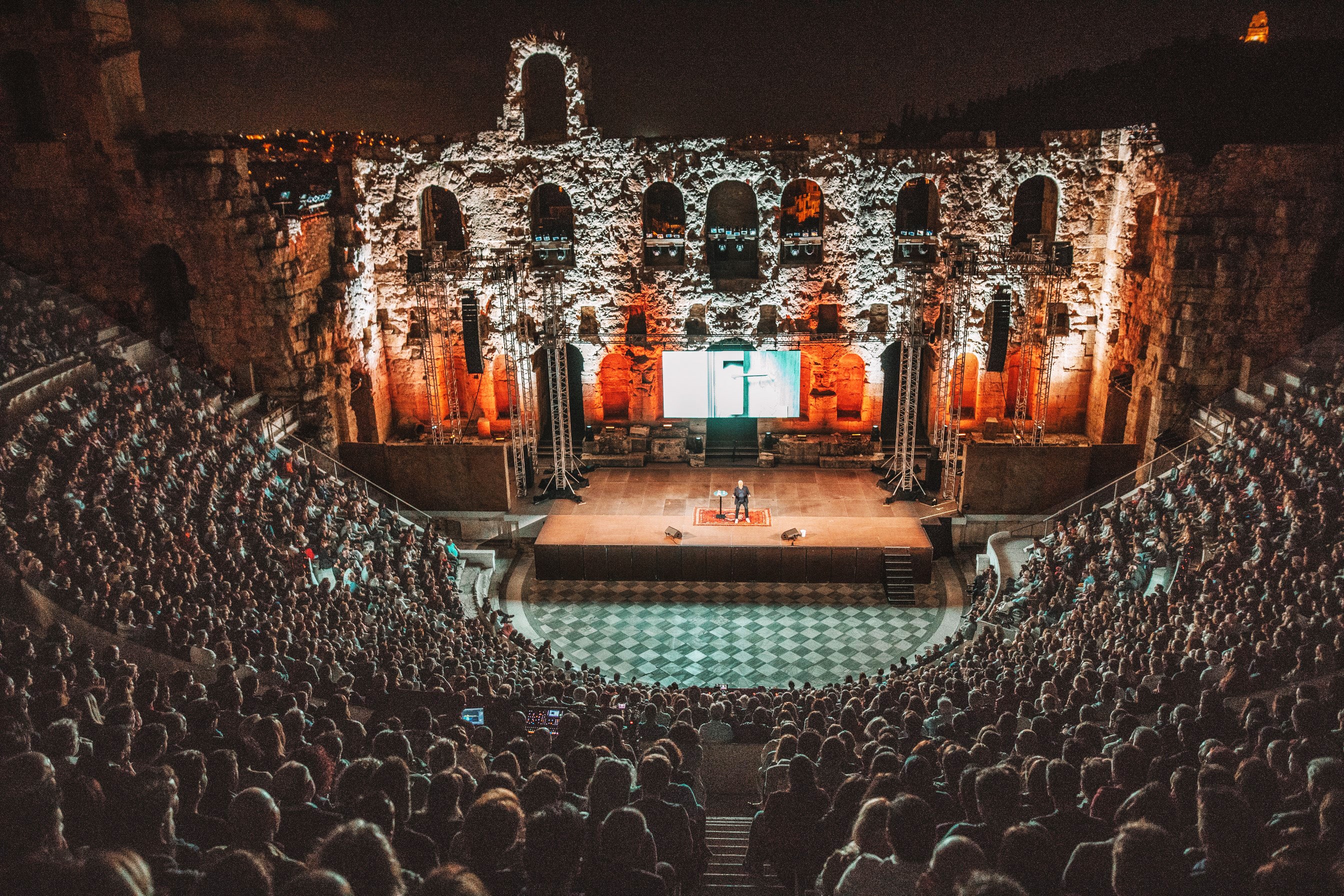
Your support helps us to tell the story
From reproductive rights to climate change to Big Tech, The Independent is on the ground when the story is developing. Whether it's investigating the financials of Elon Musk's pro-Trump PAC or producing our latest documentary, 'The A Word', which shines a light on the American women fighting for reproductive rights, we know how important it is to parse out the facts from the messaging.
At such a critical moment in US history, we need reporters on the ground. Your donation allows us to keep sending journalists to speak to both sides of the story.
The Independent is trusted by Americans across the entire political spectrum. And unlike many other quality news outlets, we choose not to lock Americans out of our reporting and analysis with paywalls. We believe quality journalism should be available to everyone, paid for by those who can afford it.
Your support makes all the difference.“We are fully aware that this is a huge benchmark we’ve set here,” comments Theodora Karakassi, one of the organisers behind Athen’s Plissken Festival and the forthcoming Max Cooper AV show at the Odeon of Herodes Atticus, a nearly 2,000-year-old theatre nestled on the southern slope of Athens’s Acropolis.
Belfast-born audiovisual artist Cooper is set to become the first ever techno act to play in the ancient auditorium after collaborating with institutions such as the Barbican, Zaha Hadid Architects, and Dolby Atmos. “But we are under no illusion here, the monument is the main protagonist in these shows. It will automatically take attention away from any production.”
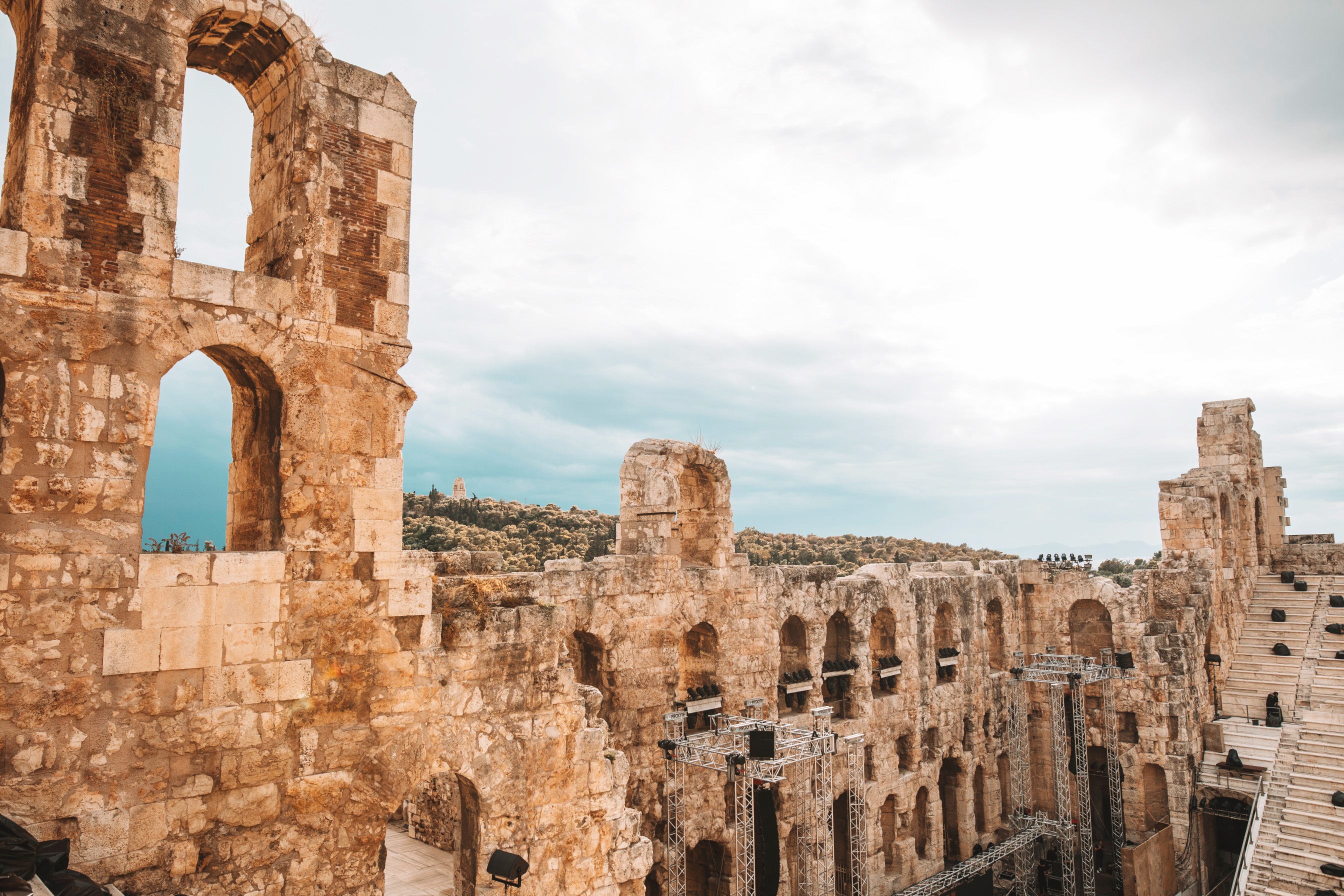
Though for organisers like Karakassi operating at the Acropolis doesn’t come without its unique challenges: decibel limits, drinks ban, no high-heels, and even a weight limit that has to take into account not only heavy-duty equipment - but people.
But why? Well, the Herodes Atticus hasn’t exactly got a history of being a particularly hardy feature of the larger Acropolis complex. Though many of the iconic structures that make up the Unesco world heritage site were built around 450BC, the Herodes Atticus was constructed much later – between 161-174AD by the Greek-Roman politician of the same name.
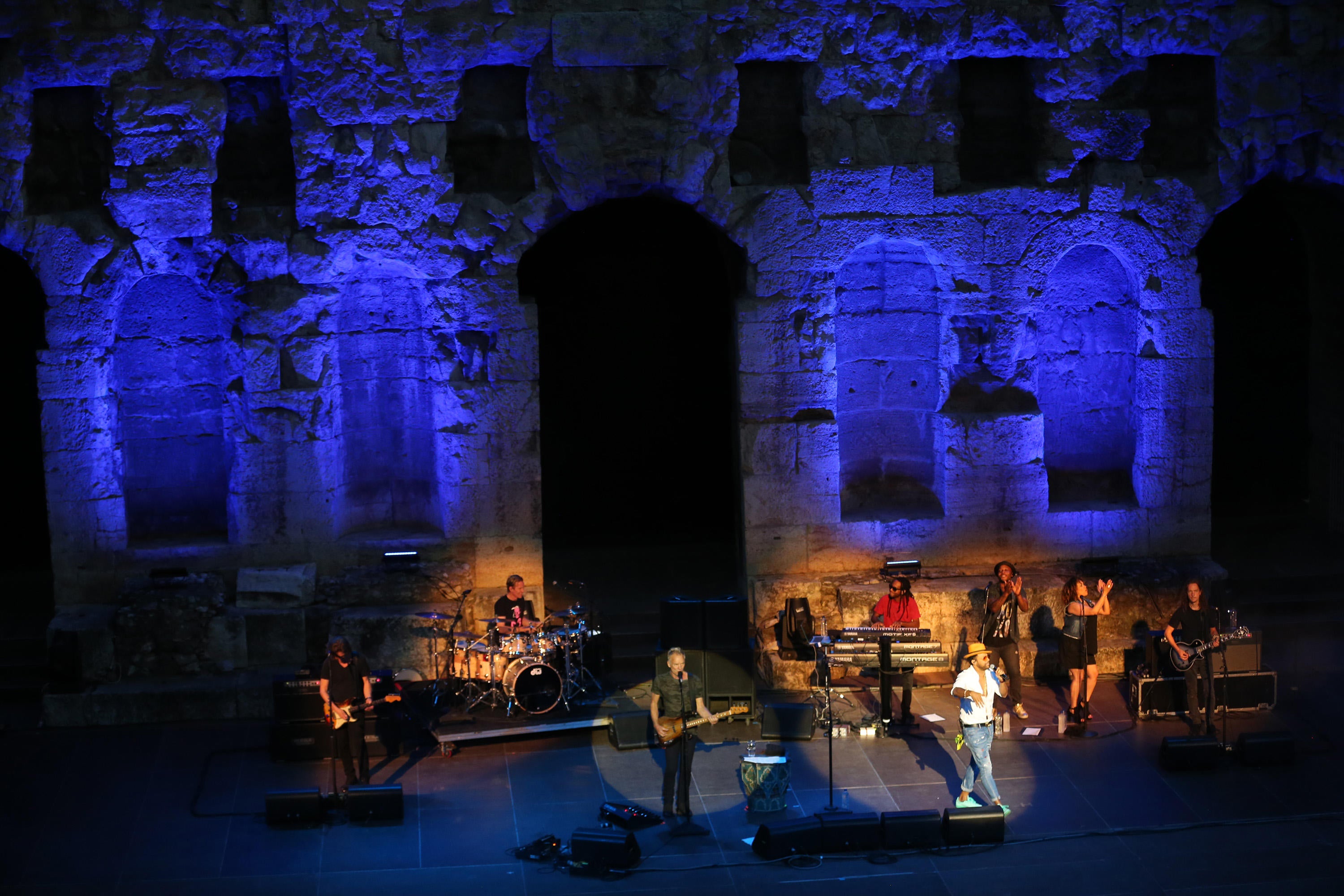
It stood for just 100 years before being left in ruin by invading Herluians in 267AD, losing its roof and much of its 4400-capacity stone seating, existing in a state of decay until the twentieth century.
The site was re-built and restored its intended capacity during the 1940s-50s, initially being home to the Athens State Orchestra and Greek soprano Maria Callas. International interest driven by performances from Frank Sinatra and its hosting of the 1974 Miss World pageant transformed the Herodes Atticus from a cultural landmark into a fully-fledged arena.
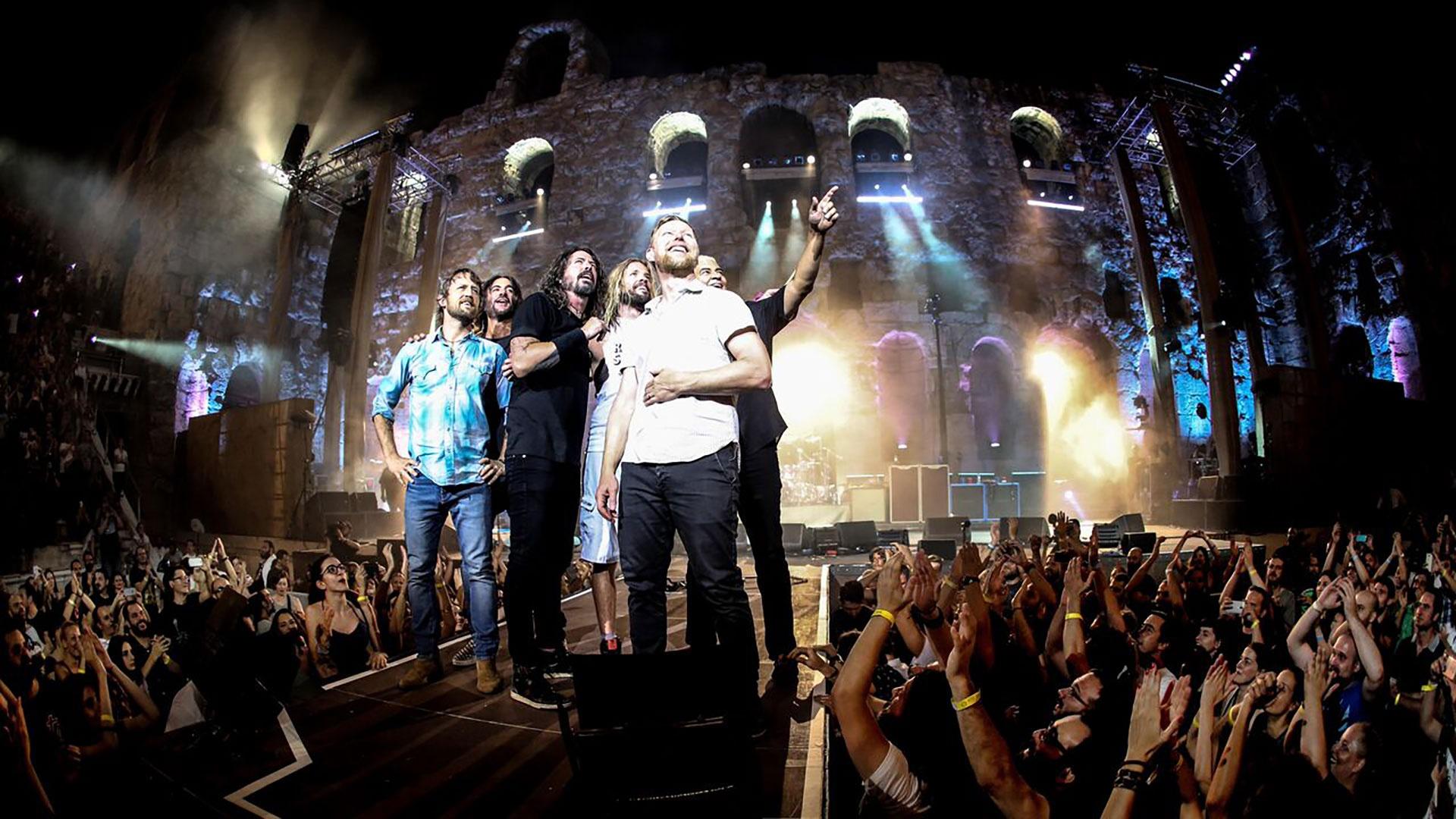
It’s featured shows from stars such as Sting, Luciano Pavarotti, Elton John, Patti Smith, The Foo Fighters, and Florence and the Machine.
Maria Thanassoulia was part of the team that organised the “Foo Fighters - Landmarks Live” show in 2017 and recognises that though the Herodes Atticus was devised as an optimal location for live music and performance 2,000 years ago – modern logistics can be difficult to navigate around it.
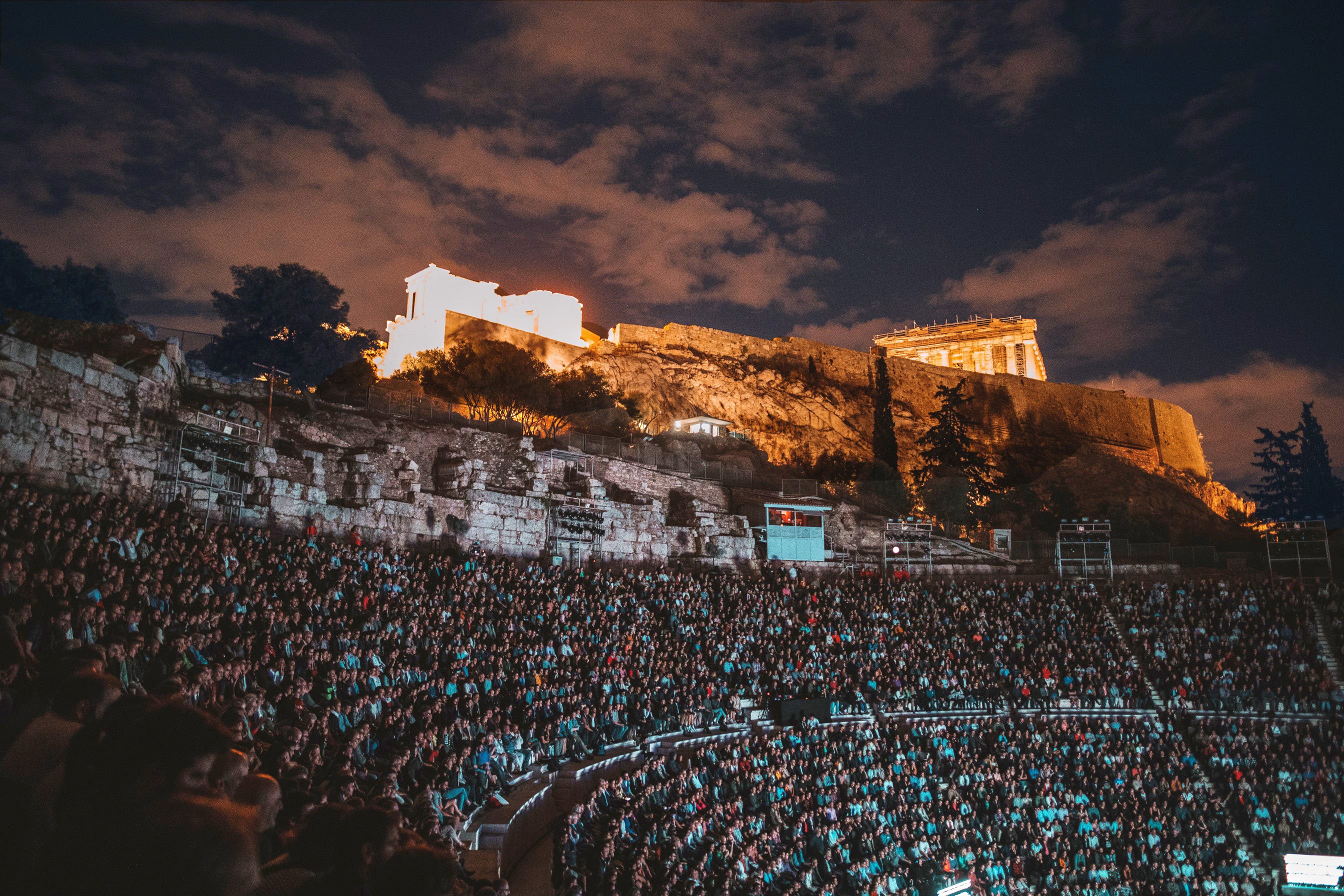
“Even though the acoustics are incredible – because of the design of the space thousands of years ago, the need to control volume and the decibel of the music to protect the marble makes it challenging to hold a rock gig.
“We also had the issue of capacity, this was the first rock band to play in the space but all of Athens wanted to come and see the Foo Fighters – there’s a reason these bands usually play in stadiums, 4,400 is not a lot of people compared to their usual crowds.”
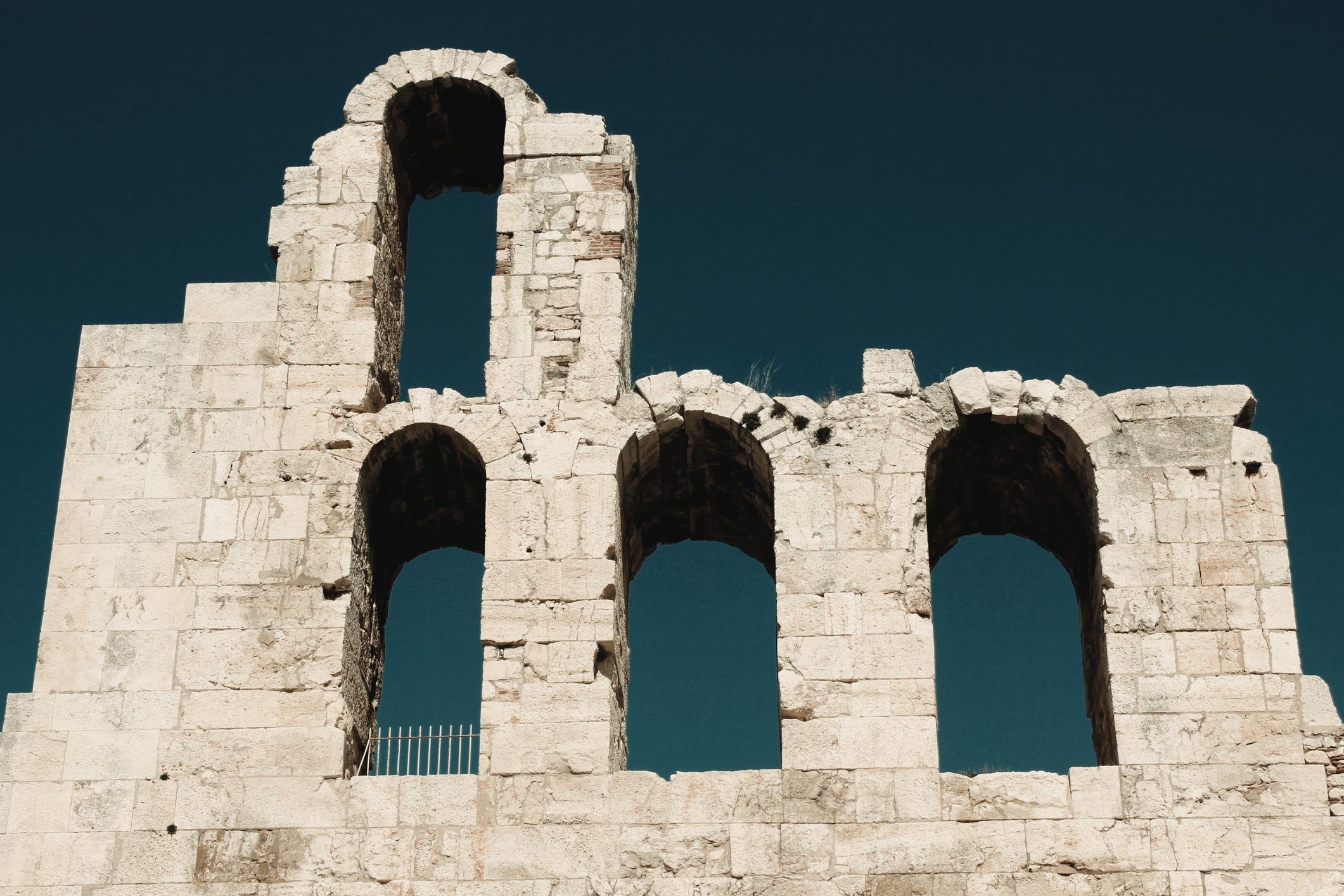
The entirety of the Acropolis is a Unesco world heritage site, which ensures strict procedures must be in place to guarantee the protection of all the structures on-site. Organisers must abide by rules such as allowing the marble to “breathe” between songs and sets or controlling the size of equipment coming in and out of the venue. But much of the hardship on an organisational side – as Berang Emamian Dezfoli, who produced British comedian John Cleese’s 2019 show, observes – comes before the event has even taken place.
“Though the unpredictability of the Athenian weather is a bit of a pain” he laughs. “We experienced this half an hour before doors opened on the John Cleese show – it’s open-air so it’s particularly vulnerable to rainfall. We had a bit of a moment waiting to see if the show could go on.”
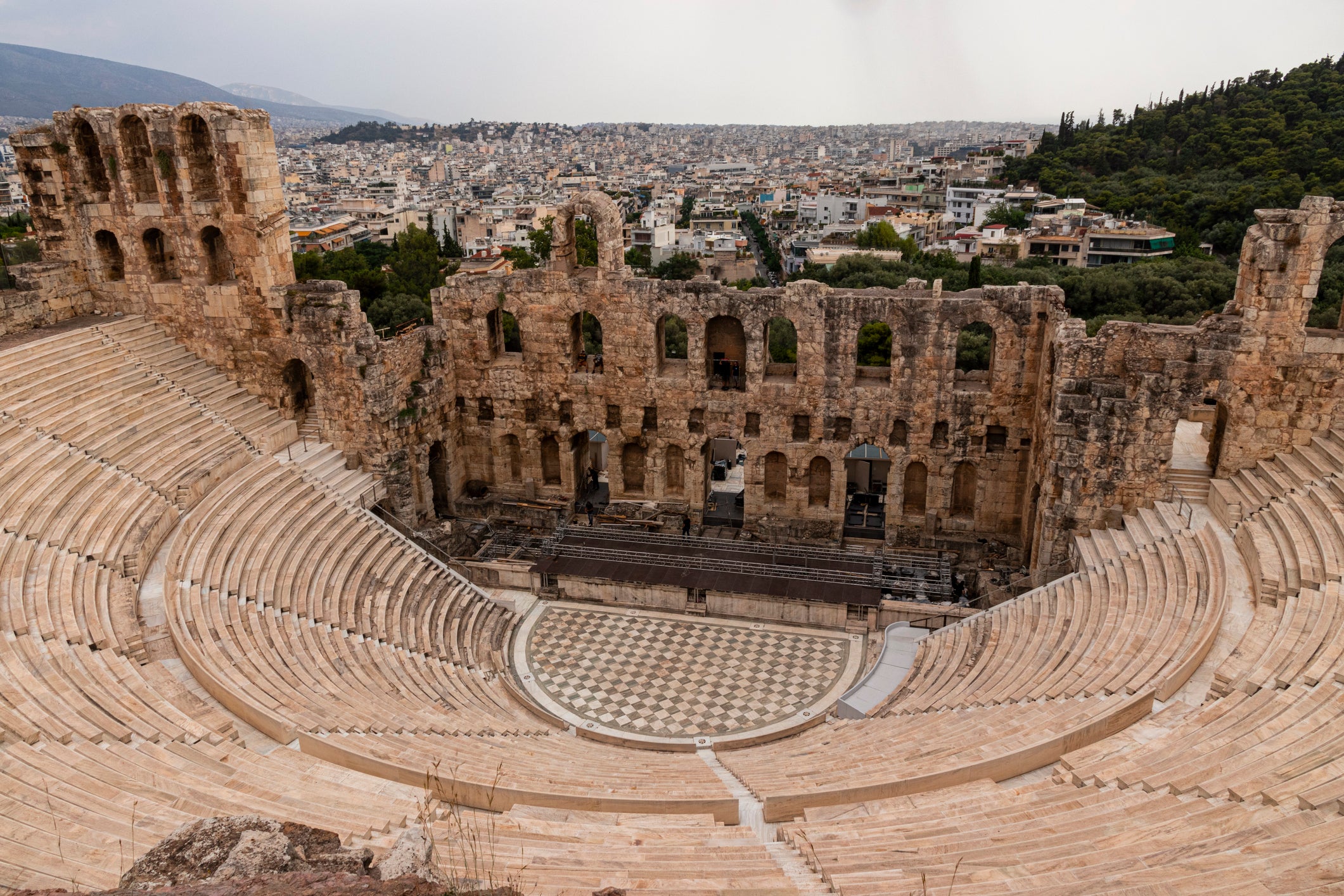
For Cooper, an artist used to the traditional acoustic setting of a club and their single-source sound systems, a decibel limit to protect the fragile ruins of the theatre is an unusual concept: “We’ve had to set up these smaller speakers and we’ve dotted them around the central stage.”
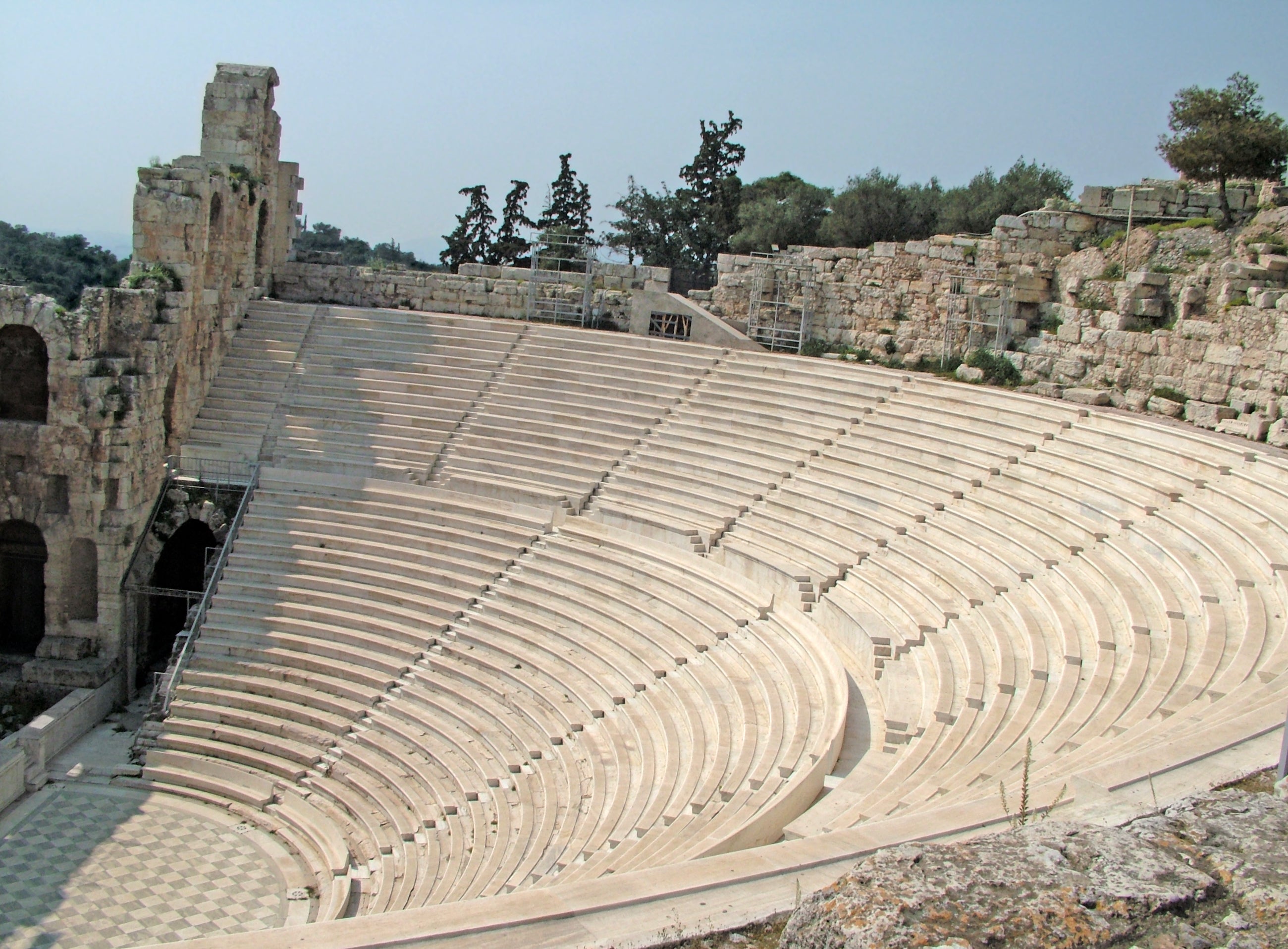
Cooper will be playing the first ever techno show at the space, a mixed-media offering that will include both music and projected visuals onto the theatre. He credits his exploration of classical genres in convincing the traditionalists at the Acropolis to let him play there: “I do a lot of ambient and post-classical work with pianists and elements that I guess are more palatable from a classical perspective, so I’m sure that helped sneak the bass drums in.”
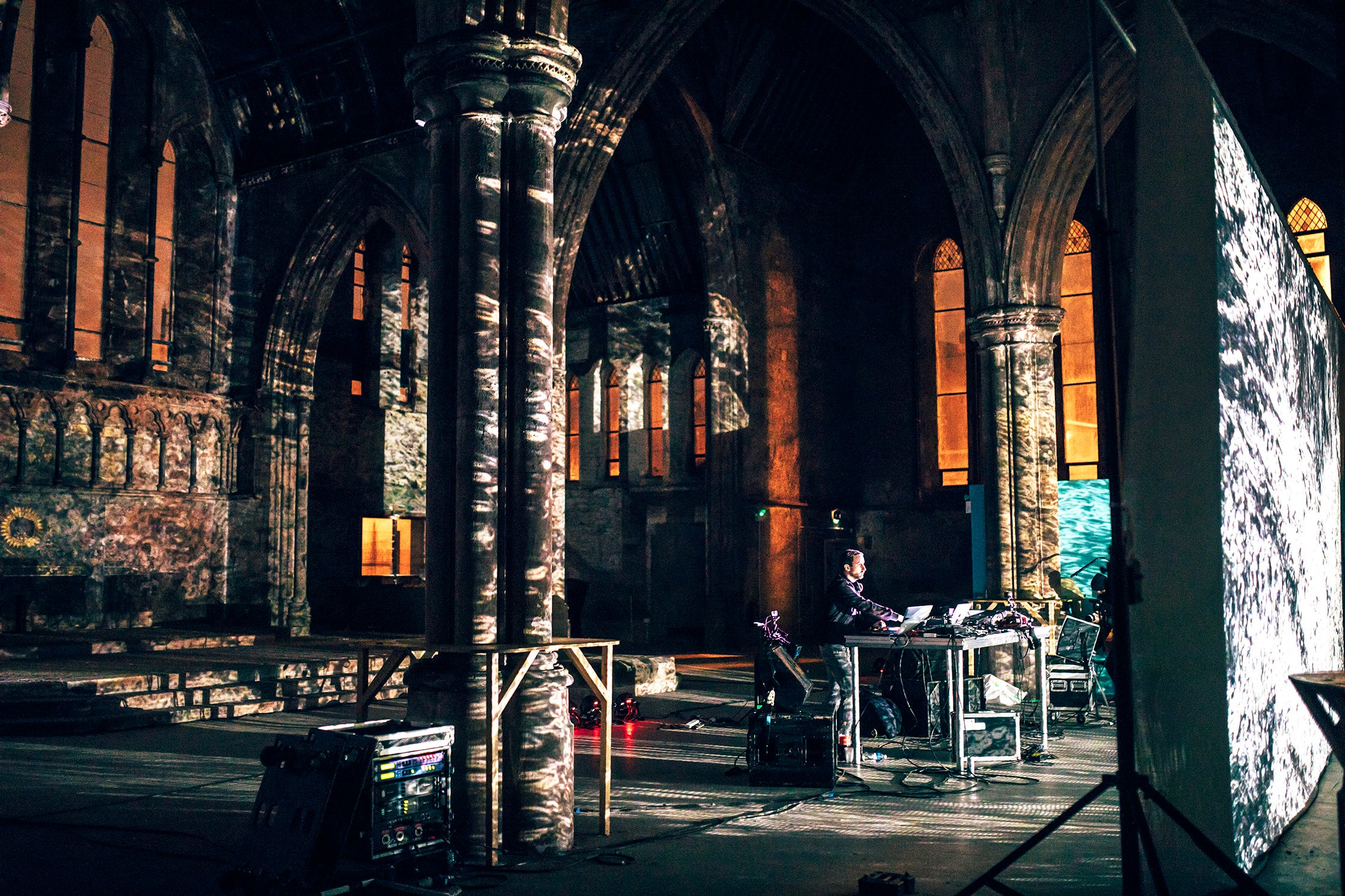
“I work with many projectors to use each space itself as the canvas so that the architecture and beauty and history of the space becomes as much a part of the show as my music and visual collaborations. I’m aiming to make a spectacle of the Acropolis.”
Tickets are still available for Max Cooper Live at the Acropolis on the 6th July 2021 here
Join our commenting forum
Join thought-provoking conversations, follow other Independent readers and see their replies
Comments